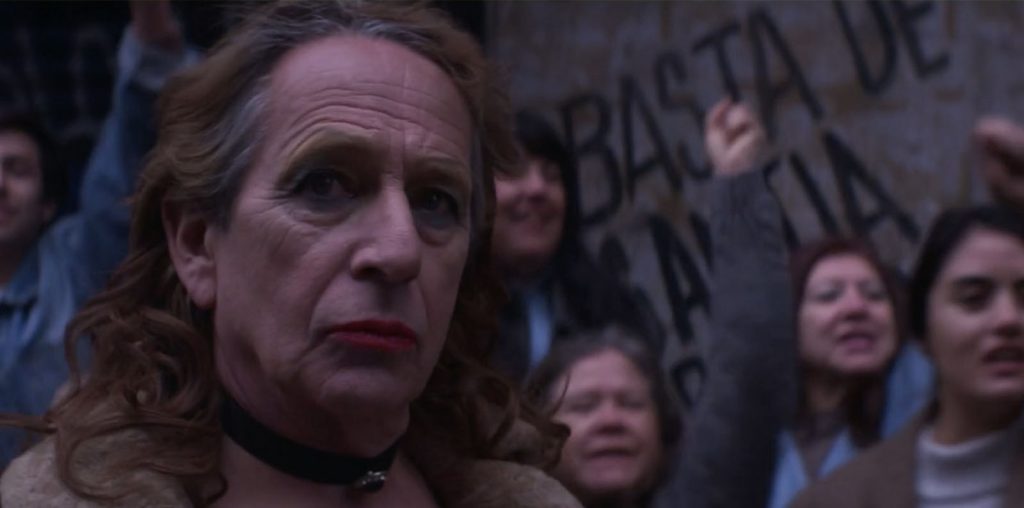
BOOTLEG FILES 287: “Lying Lips” (1939 feature film by Oscar Micheaux).
LAST SEEN: Available on several Web sites.
AMERICAN HOME VIDEO: On public domain labels.
REASON FOR BOOTLEG STATUS: No copyright protection.
CHANCES OF SEEING A COMMERCIAL DVD RELEASE: As an orphaned film, no one is going to come to its protection.
Many people have heard of Oscar Micheaux, the pioneering African American filmmaker, but I suspect few have ever seen his films. However, it is impossible to enjoy a complete appreciation of his canon since the majority of his films are considered lost and many of the surviving films are not extant and require proper restoration. What does survive, however, is on the shaky side, and Micheaux the creative artist is consistent by putting forth movies that are riddled with garbled story lines, uneven acting, threadbare production, and lethargic direction.
The 1939 “Lying Lips” is the relatively rare Micheaux film that survives in a complete version that is easy to watch, even though today’s prints are public domain dupes. And while it does not appear to be representative of what Micheaux was capable of creating, it is an interesting curio of historic (if not artistic) value.
Micheaux was the most prominent African American filmmaker working in the so-called “race films” genre, which consisted of all-black productions distributed exclusively to racially segregated theaters in the Jim Crow era. For his time, Micheaux was an uncommonly daring filmmaker who tackled subject matter that was considered highly inflammatory in its day: lynching, interracial romance, social and economic injustice against African Americans, prostitution, and corruption among African American community and religious leaders. Micheaux’s willingness to fight censorship boards and present provocative films put him beyond the narrow limits of race films and decades ahead of his time.
But that is not to say that he was a wildly talented filmmaker. Perhaps the greatest compliment to racial equality (and the greatest criticism of the man’s creative aspirations) is to judge Micheaux’s films on their artistic merits, rather than their sociological value. Time Magazine’s Richard Corliss, who is not given to hyperbole, said of the filmmaker:
Micheaux was the D.W. Griffith of race cinema. And also its Edward D. Wood, Jr….Micheaux’s work represents the apogee or nadir of Bad filmmaking. His close study of Griffith’s visual lexicography got him through the silent period, but the demands for realism in sound films harshly exposed his inadequacies of technique…The director seems not only to have learned nothing from 30 years of filmmaking, but also to have seen no other films.
Village Voice critic J. Hoberman was even crueler: “The longer Micheaux made films, the badder they got…Micheaux’s films define objective badness. His camera ground relentlessly on while the key light wandered, traffic noise obliterated the dialogue, or a sound man’s arm intruded upon the frame. Actors blew their cues, recovered and continued…Thirty years before Warhol, Micheaux approached mise-en-scène Degree Zero. Left stranded in scenes that are grossly overextended, his performers strike fantastic poses, stare affectingly into space or gaze casually off-camera.”
But Eric Monder, a Micheaux scholar and a reviewer for Film Journal International, sums up Micheaux’s importance succinctly: “Oscar Micheaux inspires me personally as the first true ‘indie’ feature director and the first real ‘hypenate’ director-actor-producer-writer-distributor. Moreover, Micheaux has probably influenced and inspired many filmmakers who have never even heard of him. The more I learn about Oscar Micheaux and what he achieved, the more impressed I become. His visionary approach also extends to the sensitive and often controversial topics he tackled, probably at considerable professional and personal risk. I am amazed by his frank, unflinching perspective about race, religion, and gender, among other subjects.”
“Lying Lips” takes the race film in a curious direction by incorporating white actors into what used to be billed as “an all-colored cast.” Even more remarkable was having the white and black actors interract as equals. Throughout the film, the black characters make pointed comments about how white society treats their race, and they even break a taboo of the genre by identifying each other in racial terms (and not in a jolly manner – one snap finds a character calling someone a “dumb Negro!”).
“Lying Lips” focuses on Harlem nightclub singer Elsie, who is the proverbial good girl. She’ll sing saucy tunes for her club audience, but she won’t party with gangsters and other crooked patrons after hours. Her two Italian employers try to force their African American manager to force her to be friendly and show up at a party for some visiting hoods. But Benny refuses to force Elsie to bend her ethics, and he quits by telling his employers, “You can get plenty of men of my race to do what you want to do.”
Elsie overhears Benny’s bold action and confronts him as he is leaving the club. But he tells her not to fret, because he already has another job lined up: as a detective on the city’s police force. Benny drives Elsie to her home, which she shares with her aunt. Elsie believes her aunt is sleeping, so she goes to take a bath.
While bathing (we only see Elsie from the shoulders up), she has a long monologue extolling Benny’s goodness. “I’d like to see some other colored man give up his job on account of a girl,” she says to herself. She then promises that if she marries Benny, she will give him whatever money she earns and live off whatever allowance he gives her.
Once out of the bathtub, Elsie gets a phone call from a mysterious person demanding to speak to her aunt. She tries to wake her aunt, but discovers the woman is not sleeping – she is dead! When the police arrive, they arrest Elsie. Based on flimsy evidence, she is convicted of murder and receives life imprisonment.
By this time, Benny has become a detective and he is convinced of Elsie’s innocence. “Some Negro involved in this is going to talk,” he says. “They can never keep a secret. Especially something as important as a murder.” With the help of another detective, he abducts the miscreant member of a criminal circle that had its motives for framing Elsie. The detectives take the man to a supposedly haunted house and threaten to tie him up and leave him there to die. He quickly blabs and Elsie is freed. She marries Benny…and happily gives him $15,000 in insurance funds that her late aunt bequeathed to her.
Admittedly, “Lying Lips” has precious little in the way of compelling plot. It also doesn’t help that Micheaux is often clueless on how scenes should be set up. The climax, with the detectives bullying the hapless criminal with threats of haunted house mayhem, is especially atrocious: the three men stand in stolidly in a line facing the camera and talk for a seemingly endless period.
Yet the film provides an invaluable record of remarkable talent that was rarely appreciated outside of the race film theaters. Edna Mae Harris, who plays Elsie, was a prominent performer in all-black theater and film. White audiences only knew her as Zeba in the Broadway and Warner Bros. film version of “The Green Pastures.” She possessed a vibrant beauty and charming singing style, and in a more enlightened environment she could have been a major film star. However, she enjoyed a degree of success as a vocalist in the 1940s.
Robert Earl Jones, father of James Earl Jones, made his film debut in “Lying Lips.” While he never achieved his son’s level of fame, the elder Jones enjoyed a long career as a character actor. Also in the cast is Juano Hernandez, in a small role as a preacher. He also enjoyed a lengthy career in character roles in Hollywood, most notably as the first African American to play a judge in a Hollywood movie (the 1955 “Trial”).
Sadly, leading man Carman Newsome, who played Benny, never achieved any notice beyond the race film genre. A jazz band leader with no previous acting experience, he appeared in five of Micheaux’s movies. But Newsome retired from show business in 1940 and relocated to Cleveland, where he spent the next 30 years working in near-anonymity at something called the Addressograph-Multigraph Corporation.
“Lying Lips,” as with all of Micheaux’s surviving films, is a public domain title. It has been duped to death, yet decent copies can be found on a number of cheapo DVD titles and online video sites. If anything, it deserves to be seen – even if only to enable the claim that you’ve seen an Oscar Micheaux movie!
IMPORTANT NOTICE: The unauthorized duplication and distribution of copyright-protected material, either for crass commercial purposes or profit-free s***s and giggles, is not something that the entertainment industry appreciates. On occasion, law enforcement personnel boost their arrest quotas by collaring cheery cinephiles engaged in such activities. So if you are going to copy and distribute bootleg videos and DVDs, a word to the wise: don’t get caught. Oddly, the purchase and ownership of bootleg videos is perfectly legal. Go figure!

